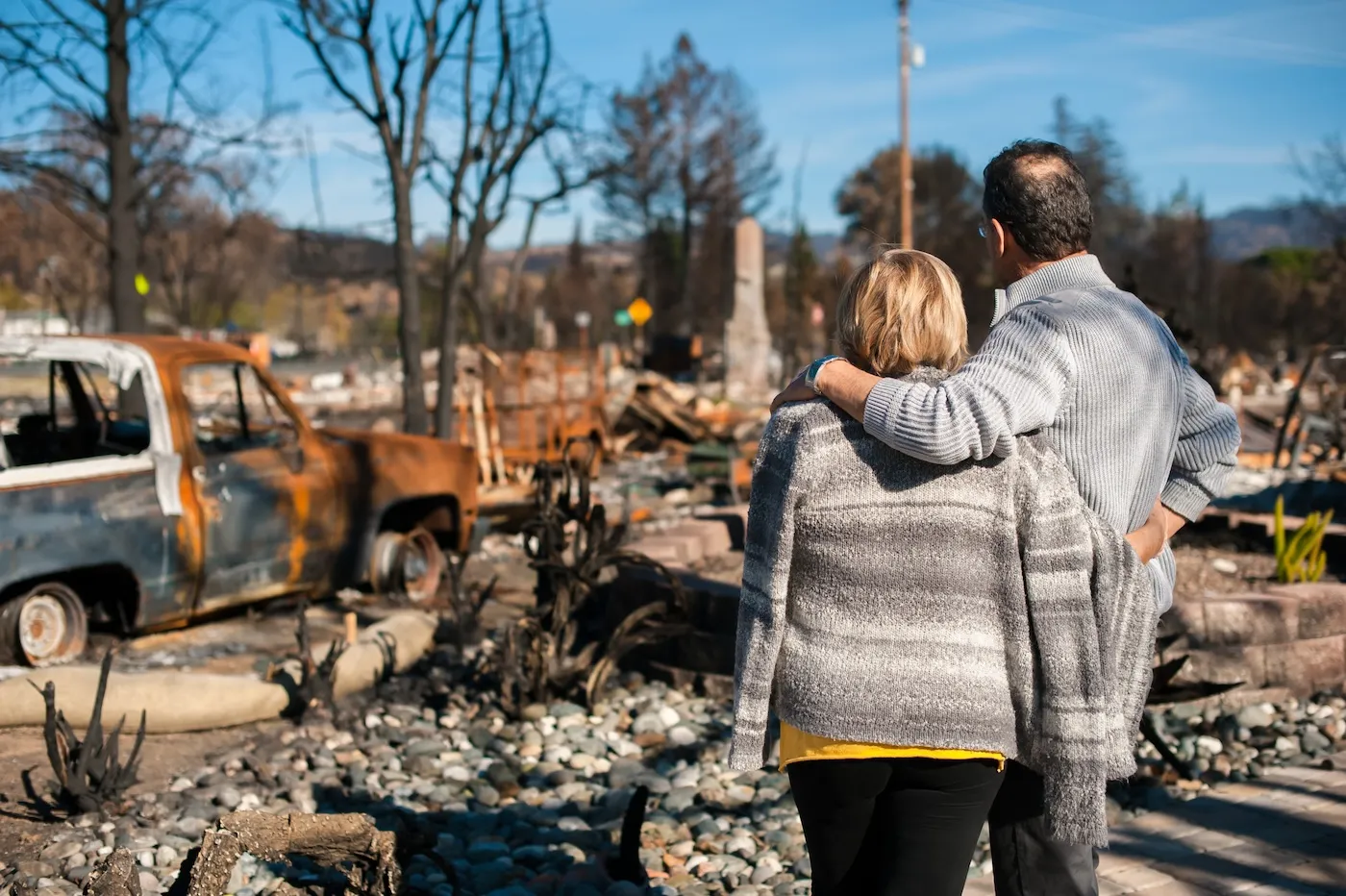Does Your Home Insurance Premium Go up After a Fire?
Quick Answer
Your home insurance premium generally goes up after making a claim following a fire. Shopping around and maintaining good credit could help you keep premium costs down, even after a fire.

Experiencing a house fire of any size is frightening—but should you also fear rising home insurance premiums after filing a fire claim? Your home insurance premium likely will increase after a fire, as it usually does any time you file a claim. However, a fire insurance claim isn't the only reason your homeowners insurance costs might rise.
What Is an Insurance Claim for Fire?
A standard homeowners insurance policy generally pays to repair, rebuild or replace your home's structure and contents after all types of fires (other than arson). It also usually pays any additional costs of living elsewhere if your home is uninhabitable while repairs are taking place.
To receive payment, you'll need to file a homeowners insurance claim. This typically involves contacting your insurance provider, completing a claim form and documenting your claim with photos, videos or lists of belongings damaged or destroyed in the fire. An insurance adjuster may visit your home to assess the damage.
If the insurance company approves your claim, they'll pay it, minus any deductible. An insurance deductible is the amount of a covered loss you're required to pay; the insurance company covers the rest. A homeowners insurance deductible may be a flat amount (such as $1,000) or a percentage of your home's insured value (such as 2%).
In California, where wildfire risk from lightning is high, the average cost of a lightning-related claim was $154,574 in 2021. Clearly, if your home suffers that much damage from a fire, you'll want to file a claim. But what about a grease fire on the stove that chars your kitchen?
Filing any type of home insurance claim can cause insurers to hike your premiums. A single homeowners insurance claim for fire can increase premiums by an average of 29%; filing two claims bumps your premiums an average of 60%, according to Insure.com.
Before filing a fire claim, carefully consider:
- The cost of the damage and the payout you'll receive, minus your deductible. If the amount you'll get is relatively small, it may not be worth filing a claim.
- Whether you can afford to cover the repairs yourself.
- Whether you've recently filed a claim. More than one claim in a seven-year period (even if a previous homeowner filed the claim) can persuade insurance carriers your home is excessively risky, leading to higher rates or even canceling your policy. You can check your home's Comprehensive Loss Underwriting Exchange report to see its claims history.
Why Does Your Insurance Premium Go up After a Fire?
Homeowners insurance premiums generally go up after making any claim. However, fire-related claims have the biggest negative impact because they generally have higher payouts than other property damage claims.
The average home insurance claim for fire and lightning-related damages was $83,519 in 2021, according to the Insurance Information Institute. By comparison, the average claim for wind and hail damage was just $12,913.
Once you've filed a claim for a certain type of loss, insurance carriers may consider your home susceptible to the same type of loss in the future. For example, if you live in a wildfire-prone area and your home catches fire, the insurance company may reasonably expect the same thing to happen again.
Other Reasons Your Homeowners Insurance Premium May Increase
Filing a claim isn't the only factor that can cause an increase in your homeowners insurance premiums. Other reasons your homeowners insurance costs may rise include:
- Adding new risks: Installing a swimming pool, trampoline, treehouse, wood-burning stove or other feature that could injure your family or visitors typically means a hike in insurance premiums. Owning certain dog breeds considered dangerous might also boost your home insurance costs.
- Widespread natural disasters: Average insurance losses due to natural disasters have soared almost 700% since the 1980s, according to the Insurance Information Institute. Even if your home has never been affected by a wildfire, hurricane or flood, insurance carriers may raise your rates to make up for their own escalating costs.
- An aging home: Older homes are more prone to problems, so they typically cost more to insure. As time goes by, outdated electrical systems, aging pipes or deteriorating roofs can all pose risks for your home—and your insurer.
- Rising construction costs: The price of construction materials has increased an average of 19% since 2020, according to Gordian, which tracks construction costs. Ongoing labor shortages also make rebuilding or repairing homes more expensive.
Look for Ways to Lower Your Home Insurance Rate
Once the smoke clears and you file a fire claim, take steps to keep rising home insurance premiums from putting the squeeze on your budget. Regularly shopping around and comparing prices from different insurance carriers can help keep your homeowners insurance costs down.
A good credit score could also help minimize your home insurance expenses. In most states, insurance companies can check your credit-based insurance score when pricing your policy. These scores differ from your regular credit score but are calculated using many of the same factors. Checking your credit score can give you an estimate of where your credit-based insurance score stands.
What makes a good credit score?
Learn what it takes to achieve a good credit score. Review your FICO® Score for free and see what’s helping and hurting your score.
Get your FICO® ScoreNo credit card required
About the author
Karen Axelton is Experian’s in-house senior personal finance writer. She has over 20 years of experience as a journalist and has written or ghostwritten content for a variety of financial services companies.
Read more from Karen